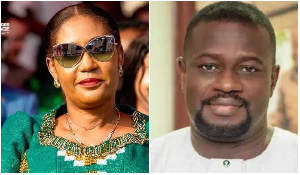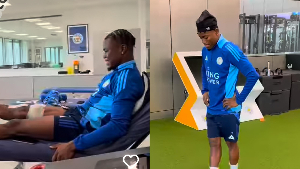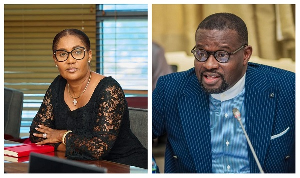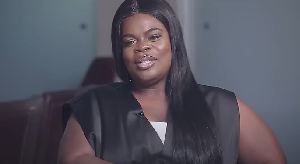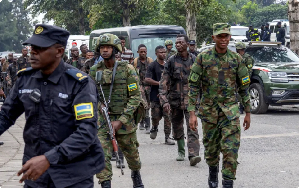PARTYING OR MEETING OUR BASIC NEEDS; THE $20 MILLION INDEPENDENCE BASH AND YOU.
Somewhere between the mineral riches gurgling beneath the earth and the desperate poverty of the people who live on it, somewhere between the golden tree that bears the golden pod, and the desperate needs and wants of the people who live nearby, something has gone terribly wrong in Ghana. The level of poverty in Ghana is unacceptable (40% of the population living on less than a dollar a day). There is an urgent need for an effective state intervention to break the cycle of poverty. This country must develop for the benefits of all its citizens not just a few. Denying the problem exists is denying a solution.In my recent writings I have focused on the negative impact of corruption in government on our efforts as a nation to develop. The enemy within series which I completed last year was dedicated to fighting corruption in government. We are our own worst enemy when it comes to making judicious use of our national resources to impart positively on the life of our people. If we don’t make the effort to stamp out corruption in government and in our national life, no amount of handouts will make a difference in our march towards economic development.
While I congratulate the government and the people of Ghana for the recent signing and hopefully the subsequent release of $547 million from the US Millennium Challenge Account, it is my fervent hope that this amount of money will be wisely invested and put to a maximum good use to impart positively on poverty reduction and economic development in Ghana. Just signing and receiving the money are not strong enough reasons for jubilating but how the money is used will determine if Ghanaians have cause to rejoice or not. The President in his thank you address at the signing ceremony was reported to have remarked “this will revolutionize agriculture in the country….”. We hope it does and if good policies are put in place it should not take long for all to see the results. May be in a year or two we must see the revolution in Ghana’s agriculture the President talked about before he leaves office. This money should be used wisely, it should not go the way the HIPC money went. Many people are questioning “where did the HIPC money go”? It made no impact at all, did not even scratch the surface of the government’s Poverty Reduction Strategy program. We must work for results, and the President for example must put aside his loyalty to long time allies and demand accountability and results from his appointees. If you do not produce results, as a Minister of State, a District Chief Executive, a government appointee, you are gone and more likely replaced by much younger and more efficient person.
I read a report in the New Internationalist magazine about a reporter who traced the fortunes of a little known village in Burkina Faso over a period of two decade (twenty years). He first visited this village in 1985, then visited again in 1995, and again in 2005 to verify how the people’s life have changed over this period. He wrote “ some things stay the same…….some change drastically”. Anytime he visited in 1995 and 2005, he posed the simple question : ”Is life better now than it was ten years ago”? And the answer was a resounding YES according to him. I wonder if any village in Ghana can answer that way. Among the improvements he saw in the village, he wrote “ Villagers didn’t have to walk several kilometers to fetch water from a polluted stream…….there were bore hole pumps in nearly every compound….., there were latrines in the village…people can phone their relatives abroad….there were new schools and more children were in school especially girls……there was a new clinic which doubled as a maternity center …….some villagers have replaced their rounded huts and its thatched roofs with much bigger rectangular huts with corrugated iron roofs……. And some affluent ones used cell phones and motorbikes.” He wrote further, “the most heartfelt news about the manifest improvements in the village’s collective life is that they have been in the basic needs areas that matter most.”. To put this in perspective, the Burkina Faso Poverty Reduction Strategy Program (PRSP) assessment report for European Network on Debt & Development 2003, states that in 2001, the government built 27 new schools, 34 dispensaries, and 72 maternity clinics across the country. Ghana at that same period was engaged in a hot debate of buying MPs and Ministers a four wheel drive or a $20,000 car loan. Burkina Faso has the third lowest rating on the UN Human Development Index but in the last two decades, its per capita national income increased by 125%, Mali by 157%, and Ghana by a mere 9%. This to me is quite unacceptable trend of affairs, it means we as a nation has been lacking behind our counterparts in the sub region.
The Millennium Challenge Account money should be used in boosting agricultural production and also in boosting the access of the poor to basic social services and the infrastructure that support it. On my recent visit to Ghana, I visited a village just a few kilometers from Kumasi, and there was no public toilet in the village, just one bore hole pump that served a community of over 5000 inhabitants, there were fights every morning in front of the pump as school children and adults struggled to fetch water, the villagers told me there was a kindergarten, a primary school, and a junior secondary school in the village a few years back, but they have all closed down and the school kids now have to walk several kilometers to the next village to attend school and this has affected the enrollment rate in the village. This I think is not peculiar to that village and it is happening all across Ghana. Instead of moving forward as some countries in the sub region are doing we are moving backwards or at best stagnant as the example in this village near Kumasi shows. In so many villages across Ghana, the school building, or the only social amenity in the village was put up during Nkrumah’s era, it has broken down and there has been no repairs and no replacement whatsoever. Things have gotten worse !
We need to invest in our people, in their basic needs, if we are serious about cutting poverty. We need to invest in the health and education of our people. Education is a human right and a fundamental social duty of the government to provide it. Health is a fundamental social right and it’s the obligation of the state to provide it and guarantee it as part of the right to life. We need to set up more clinics, maternity centers, and health posts manned by specially trained health personnel who live in the community. The concept is that these professionals properly equipped with the tools of preventive medicine must be at the disposal of the people at the time and place they need them. This is better and it shows that the government is at work and it cares about its citizens than blowing $20 million on parties and celebrations. The $20 million can set up about 100 such clinics across the country and operate them efficiently. And to put Wereko Brobbey, a man who is viewed with outmost contempt by those of us who harbour the conviction that transparency and accountability are virtues to be pursued by all public servants in charge of this “fun fair” is an insult to all Ghanaians. He should rather be in prison for causing financial loss to the state at VRA than walking the corridors of power looking for the next opportunity to swindle Ghanaians again.
Anyone with a grain of common sense knows that Ghanaians cannot afford to blow such a huge budget on celebrations and partying when urgent social needs that impart positively on our people’s life are crying for attention. Governments exist to cushion the harsh effects of economic imbalance on its people. Government subsidizing petroleum products, health services, a glass of clean water here, timely medical treatment there, the ability to read and write, a modicum of law and order, and justice for all, are the barest minimum majority of Ghanaians expect from their government and I think governments exist to do that. A virtuous politician thinks about the well being of his community first.
Ben Ofosu-Appiah,
Tokyo , JAPAN.
The author is a policy strategy advisor, a social and political analyst, and a corporate trainer based in Tokyo, JAPAN. His new book : “Reflections on the Body Politic of Ghana 2000-2005” will be published early next year. As always, he welcomes your comments, responses, and your criticisms.

Views expressed by the author(s) do not necessarily reflect those of GhanaHomePage.
Tokyo , JAPAN.
The author is a policy strategy advisor, a social and political analyst, and a corporate trainer based in Tokyo, JAPAN. His new book : “Reflections on the Body Politic of Ghana 2000-2005” will be published early next year. As always, he welcomes your comments, responses, and your criticisms.

Views expressed by the author(s) do not necessarily reflect those of GhanaHomePage.






